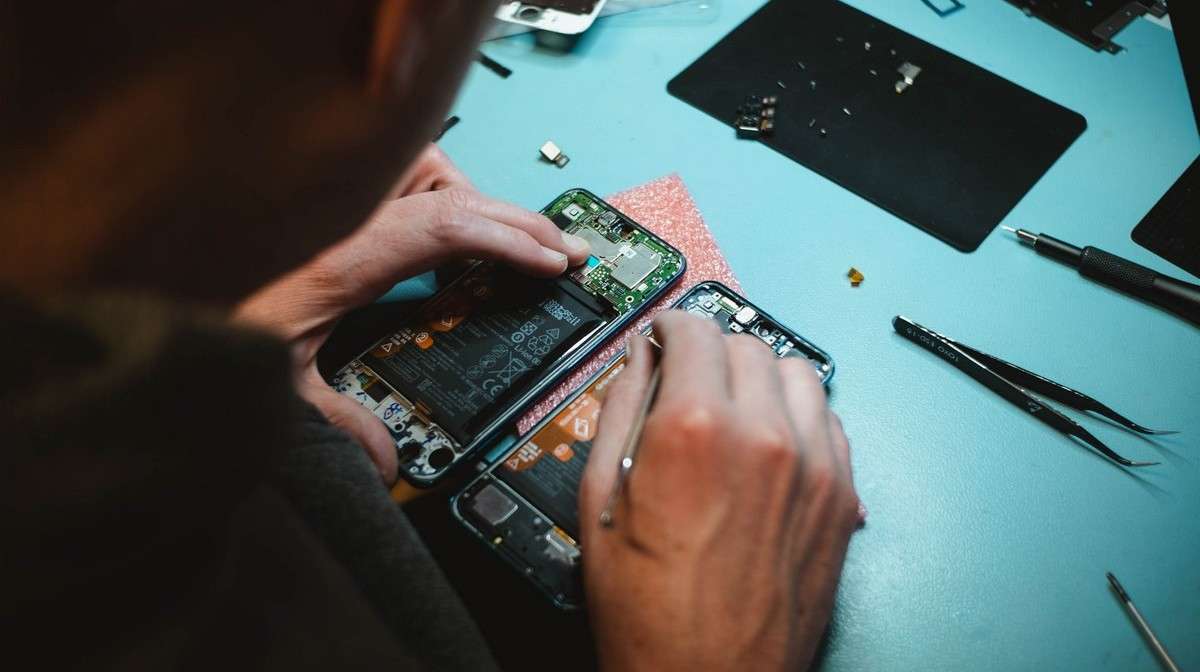Wash. D.C's 'Weed Warrior' Volunteers Tackle 'Mile-a-Minute' Invasives to Save the Capital's Trees
Since 1999, Weed Warrior volunteers have logged over 135,000 hours of time weed whacking in Montgomery County alone

WS has reported often on improvements in consumer's right to repair products, from phones to cars, where for decades it's become harder and harder to do so.
Now, the California state government has passed a landmark law that obligates technology companies to provide parts and manuals for repairing smartphones for seven years after their market release.
Senate Bill 244 passed 65-0 in the Assembly, and 38-0 in the Senate, and made California, the seat of so much of American technological hardware and software, the third state in the union to pass this so-called "right to repair" legislation.
On a more granular level, the bill guarantees consumers' rights to replacement parts for three years' time in the case of devices costing between $50 and $99, and seven years in the case of devices costing more than $100, with the bill retroactively affecting devices made and sold in 2021.
Similar laws have been passed in Minnesota and New York, but none with such a long-term period as California.
"Accessible, affordable, widely available repair benefits everyone," said Kyle Wiens, the CEO of advocacy group iFixit, in a statement. "We're especially thrilled to see this bill pass in the state where iFixit is headquartered, which also happens to be Big Tech's backyard. Since Right to Repair can pass here, expect it to be on its way to a backyard near you."
RIGHT-TO-REPAIR NEWS: Company Embodies ‘Right to Repair' By Redesigning Auto Parts That Constantly Fail—And Selling Them Cheaper
One of the reasons Wiens is cheering this on is because large manufacturers, from John Deere to Apple, have previously lobbied heavily against right-to-repair legislation for two reasons. One, it allows them to corner the repair and maintenance markets, and two, it protects their intellectual property and trade secrets from knock-offs or competition.
However, a byproduct of the difficulty of repairing modern electronics is that most people just throw them away.
MORE GOOD WORK IN THIS AREA: German City Diverts Goods From Landfills, Repairs Them, Then Sells in ‘Department Store for Reuse'
The ultimate end that consumers of many of these irreparable items are forced to make for them; they end up in landfills. So-called "E-waste" is a potentially catastrophic oncoming environmental problem since it doesn't really biodegrade in any meaningful sense, and recycling it requires technical dismantling.
The right to repair is also equally about keeping easily fixable devices out of landfills.
The California bill isn't perfect, as Wiens notes it doesn't cut back on parts pairing, whereby hardware, such as a battery, is linked to a software ID from the device it came from, rendering certain features unavailable if repaired with a replacement outside the original manufacturer's purview.
However, Wien added in the statement that he believes the California bill is a watershed that will cause a landslide of this legislation to come in the near future.
SHARE This Great Legislation With Your Friends In California…
Be the first to comment